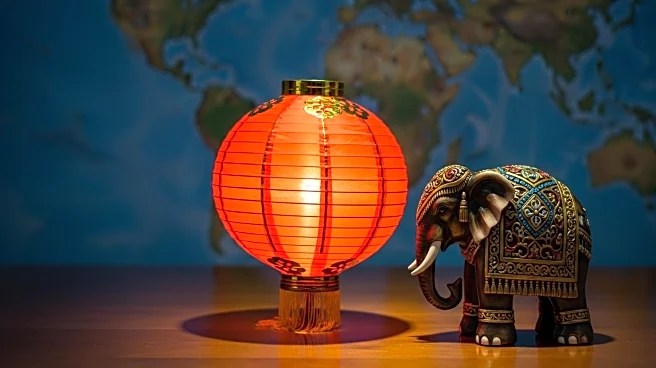What's Happening?
India's Prime Minister Narendra Modi has arrived in China to discuss economic relations with President Xi Jinping, as both nations face challenges from U.S. tariffs imposed by President Trump. The tariffs have significantly impacted India's export sector and China's economic plans. The meeting aims to reset the historically strained relationship between the two countries, which has been marked by border disputes and other geopolitical tensions. The leaders are exploring ways to leverage their respective economic strengths to reduce dependency on the U.S. and diversify their export markets.
Why It's Important?
The potential strengthening of ties between China and India could have significant implications for global trade dynamics. As two of the world's largest economies, their collaboration could shift economic power balances and reduce U.S. influence in the region. This development is particularly crucial for India, which is seeking to mitigate the impact of U.S. tariffs on its economy. For China, improving relations with India could help counteract the economic slowdown exacerbated by trade tensions with the U.S. The outcome of these discussions could influence regional stability and economic growth in Asia.
What's Next?
The meeting between Modi and Xi could lead to new economic agreements and collaborations, potentially including the resumption of direct flights and relaxed visa regulations. Both countries may also explore joint ventures in manufacturing and services to strengthen their economic ties. The broader geopolitical implications could see India and China playing a more significant role in regional alliances, such as the Shanghai Cooperation Organisation, and potentially influencing global trade policies.
Beyond the Headlines
The rapprochement between China and India could also have cultural and diplomatic implications, as both nations navigate their historical rivalries and seek common ground. The collaboration might extend to addressing shared challenges, such as climate change and regional security, fostering a more cooperative environment in Asia.









